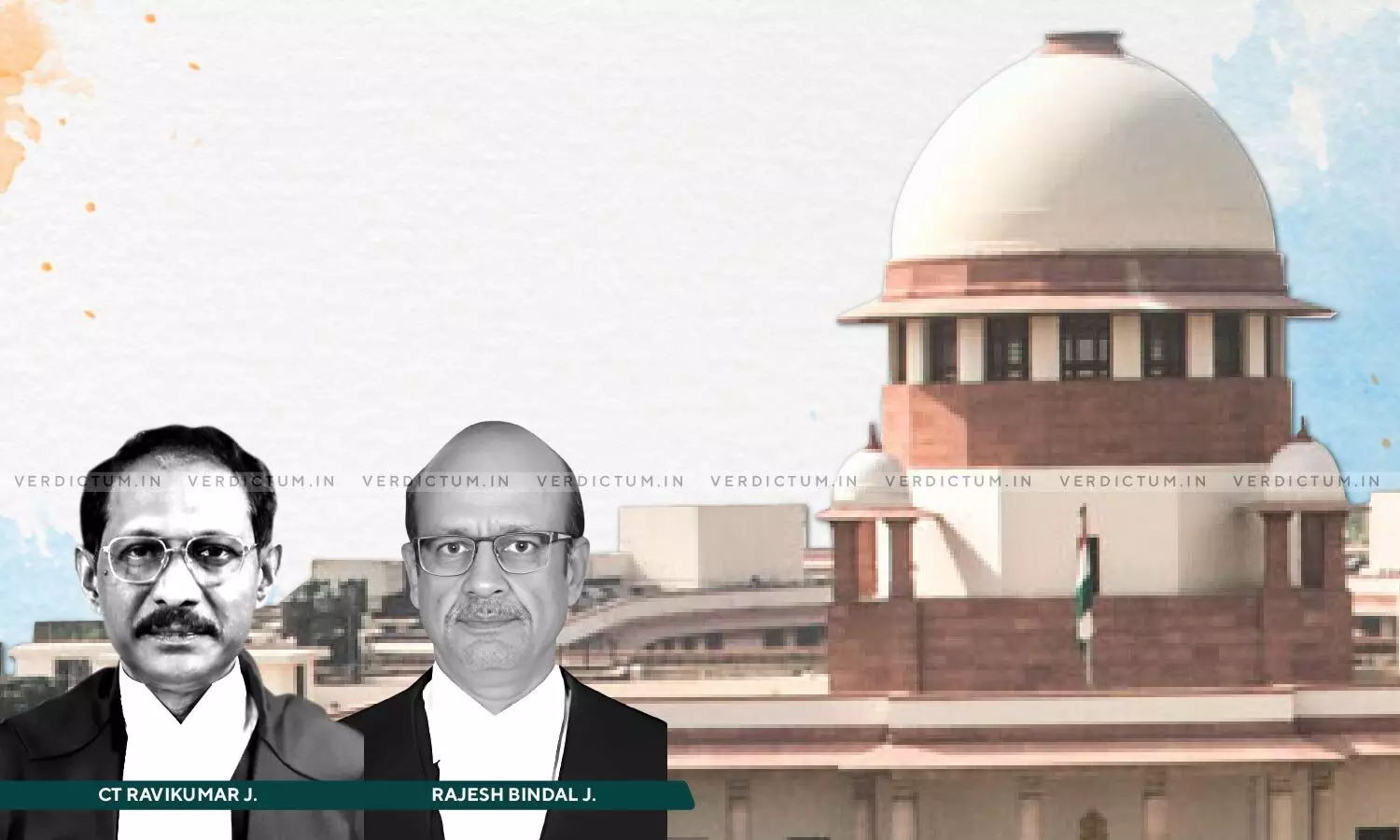
SC Expresses Prima Facie View That Magistrate Is Not Taking Cognizance While Directing Investigation U/s. 156(3) CrPC, Tags Matter With 'Manju Surana' Reference
 |
|The Supreme Court made a prima facie observation that while directing an investigation under Section 156(3) of the CrPC and forwarding the complaint therefor, a Magistrate is not actually taking cognizance.
The Court directed the Registry to tag the matter with Manju Surana vs. Sunil Arora & Ors.(2018) wherein a question has been referred to a larger bench as to whether a Magistrate takes ‘cognizance’ while directing an investigation under Section 156(3) of Cr.P.C. thereby requiring the prior sanction in case of a public servant.
The Bench of Justice CT Ravikumar and Justice Rajesh Bindal observed, “The judgment in Manju Surana (supra) would reveal that the matters were referred to larger Bench on 27.3.2018. Considering the fact that question involved is a matter of relevance and such issues arises frequently for consideration before Courts, we are of the considered view that an earlier decision on the question referred is solicited…Registry is directed to place these matters before the Hon’ble the Chief Justice of India for appropriate orders.”
Senior Advocate Sanjay Parikh appeared for the Petitioner whereas Senior Advocate Sanjay Kharde appeared for the Respondents.
The Court was hearing the counsels and on perusing the material on record, found that the question of law was already referred to a larger Bench, as per judgment in Manju Surana.
The Court held, “The question referred under the judgment in Manju Surana’s case (supra) is whether, while directing an investigation in terms of provisions under Section 156(3) of the CrPC, the Magistrate is applying his mind. In other words, whether the Magistrate takes ‘cognizance at that stage’… We are of the considered view that scanning of the provisions under Sections 156(3), 173(2), 190, 200, 202, 203 and 204 of the CrPC would, prima facie, reveal that while directing for an investigation and forwarding the complaint therefor, the Magistrate is not actually taking cognizance. However, since the said question is referred as per the above judgment, judicial discipline and propriety dissuade us from proceeding further with the case and hence, we order to tag the captioned matters also along with the matter(s) already referred. Ordered accordingly.”
The Judgment of Manju Surana raised the following question of law, “No doubt the process under Section 156(3) of the Cr.P.C. is only one of investigation. The larger question, of whether any such direction can be issued without prior sanction has been referred to a larger bench. Were the appellant to succeed and were the matter to go back to the Magistrate and the Magistrate after application of mind forms an opinion to direct investigation by the police, it would be always open to the Magistrate to include the name of respondent No.1 if such material is found against him.”
Cause Title: Shamim Khan v. Debashish Chakrabarty and Ors.
Appearances:
Petitioner: Senior Advocate Sanjay Parikh, Advocates Raj Awasthi, Pukhrambam Ramesh Kumar, Karun Sharma, Anupama Ngangom, Rajkumari Divyasana, Maulshree Pathak, Meenakshi Vimal, V. Madhukar, Mohit D. Ram, Monisha Handa, Rajul Shrivastav and Anubhav Sharma
Respondents: Senior Advocate Sanjay Kharde and Advocates Satyajit Kharde, Abhishek Man Sunil Kumar Sethi, Kailas Bajirao Autade, Ashish Wad, Tamali Wad, Ajeyo Sharma, Akriti Arya, Samrat Krishnarao Shinde, Siddharth Dharmadhikari, Aaditya Aniruddha Pande, Bharat Bagla, Sourav Singh, Aditya Krishna, Preet S. Phanse, Adarsh Dubey, Abhishek Bharti, Santosh Pathak, Purva Naik, Aarti Mahto, Balaji Srinivasan and P. N. Puri